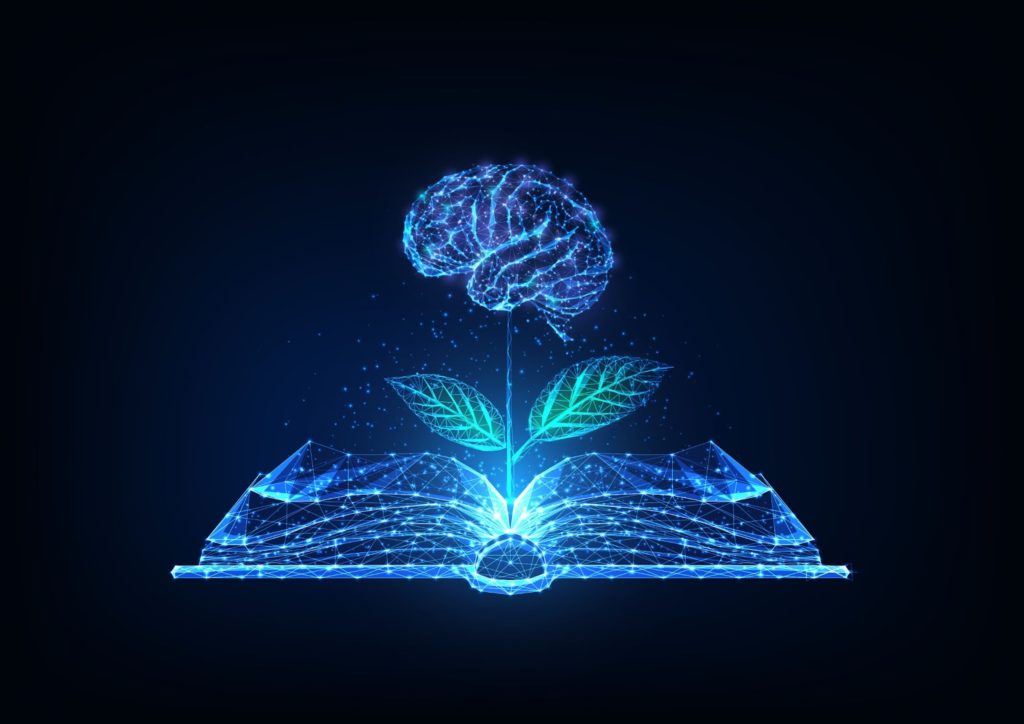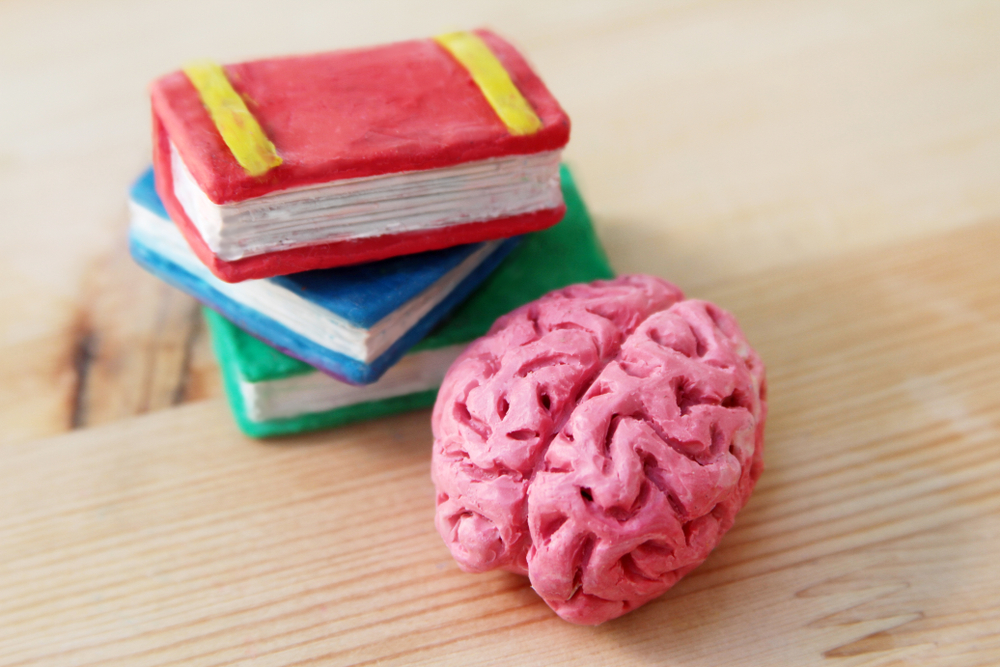
Reading a book lets the mind enter new adventures, can introduce the individual to new ideas and ways of thinking and books can even provide a virtual tour of other countries without leaving home. For many individuals, reading is an enjoyable entertainment option that can keep them turning the pages for hours.
Beyond the entertainment benefits of books, reading also offers positive mental impacts, too. According to Ness Labs, here’s how reading benefits the brain:
- Improves memory
- Stimulates the mind
- Boosts vocabulary
- Improves focus and attention
- Strengthens analytical skills
Read a Book and Solve Word Puzzles to Improve Memory
When reading a book, our mind has to decode the words and understand the meaning. The reading process involves complicated connections.
One study found that people who read or are involved in other hobbies could have a lower incidence of dementia. However, the link was found in those who had a high involvement in these hobbies. In addition, the study noted that solving crossword puzzles and making crafts were found to have the highest benefit.
The study discovered that reading the newspaper was actually linked to an increased incidence of dementia; although, the study explained that the reason could be linked to what section was read in the paper (some sections might require less cognitive effort).
However, mentally challenging reading material and word-related puzzles might both help memory. Grab a good thought-provoking book and solve a few crossword puzzles, too.

Reading is Mentally Stimulating
The act of reading stimulates the mind. Science doesn’t necessarily have to explain this, as anyone who has become lost in a good book knows that those words on a page can transport the mind somewhere new.
Reading can introduce new concepts, and reading a book can even help us learn new skills. Textbooks, for example, are designed to educate the mind and enhance learning.
Fiction books can create new worlds beyond our reality. Reading can take us to the future, help us explore the past or even transport the mind to an imaginary location. In books, unicorns, fairies and even horrific monsters are very real.
The stimulation from reading and working our brains during the reading process could help lower the risk of dementia and/or Alzheimer’s. Again, combine reading with other mentally stimulating puzzles. Push the brain and give it a good workout.

Reading Boosts Vocabulary
Ness Labs also noted that reading helps vocabulary skills, too. However, this benefit is likely well known by many educators.
Challenging books can expose the reader to new words. When a child (or adult) reads, keep a phone or dictionary nearby to encourage word exploration and increase understanding. If the word is unknown, look it up. Google it or find the definition in the dictionary.
Some students might be required to memorize a list of vocabulary words as part of their language arts curriculum. Students might define the word and then use it in a sentence. Teachers also could quiz students on these vocabulary words.
No one is ever too old to expand their word knowledge. Explore unknown words; look up their definition and incorporate them into writing or conversation.
Reading Helps Focus and Attention
Reading requires the individual to be attentive. The mind has to decode and discern meaning to comprehend the text. The reading process could help an individual focus only on those words on the page and allow them to delve deep into the story.
However, some children might have difficulty with reading because their mind wanders. Adults, too, could have trouble focusing and calming their mind to enjoy a book. The site BookSummaryClub offers tips on how to improve focus while reading; the site recommends meditation and even exercising before opening up a book.
Strengthens Analytical Skills
As students move into higher grades, they will be expected to analyze text and literature beyond simplistic summations. Reading comprehension will evolve into more abstract analyses of characters, plots, and themes; students might even be required to relate the book to current events.
These more complex curriculum expectations could encourage students to improve their analytical skills. Questions related to reading won’t just focus on the basic w/h prompts (who, what, where, when, why and how); instead, they will challenge students to think deeper about what they read. As Ness Labs explains, these higher-level analytical skills can benefit other aspects of an individual’s life, too.
Students might analyze a book differently. These unique interpretations of novels and literature, though, can highlight how books can take on new meanings based on context, culture and even the individual. As an individual grows and changes, a book’s meaning also could evolve.

Beyond the Brain: Health Benefits of Reading
Reading a book offers many brain benefits, but reading also provides other health benefits. Here are five other ways that reading a good book can benefit the body:
- Helps the body prepare for sleep
- Provides relaxation
- Lowers blood pressure and decreases stress
- Increase empathy
Read a Book Before Bed
Reading a book can help prepare the body for sleep. Instead of staring at a phone, grab a book and read for a few minutes before turning off the light. Some people might even read for a few hours.
Reading can make the eyes feel tired. Those who regularly read before bed might immediately recognize the moment when their mind and eyes can work no longer in deciphering the text.
While some individuals might love to read via an ereader on their phone, they might be wary of using these devices before bed. The blue light emitted from screens can interfere with sleep. Wearing blue light glasses, though, could help with this issue.
Books are Relaxing
Reading can help the body feel more relaxed. Again, the mind is transported on a new adventure. In addition, as the mind has to work on decoding and understanding the meaning of those words, it doesn’t have time to worry and ruminate about the day.
Books are a great mental escape. Children and adults might find a specific genre or author that helps them feel relaxed and happy.
Reading Can Help Lower Blood Pressure and Stress
Reading provides benefits for the heart, too. According to GoHealth Urgent Care, reading lowers blood pressure and heart rate. GoHealth Urgent Care explains, though, that reading isn’t the cure-all for cardiovascular health.
Reading could help an individual feel less stressed. When an individual is under stress, their blood pressure could spike higher temporarily. Reading might help individuals calm down and feel slightly less stressed.
Reading Can Increase Empathy
Reading often requires the individual to put on the shoes of someone else. A book transports the mind into the actions of new characters and exposes the reader to different ideas and scenarios.
As books require the reader to follow the adventures, misdeeds and dilemmas of a character, children (and adults) might find that they see situations from a different angle. Discover Magazine explains that “…stories — fictional ones in particular — offer another way to step outside of oneself.”
What to Read
Reading offers many benefits for the mind and body. A regular reading habit can help the body feel more relaxed and get ready for falling asleep. Cognitive benefits of reading include improved focus and analytical skills. In addition, every book can introduce children and adults to new words. No one is too old to expand their word knowledge.
All books have the power to help the individual learn something new or explore new lands. Books are a passport-free vessel to travel the world. They can help children improve their empathy and expose the mind to new ideas.
Give the mind a workout and help the body relax by visiting the library or the personal bookshelf and enjoy a good book.

 Español
Español